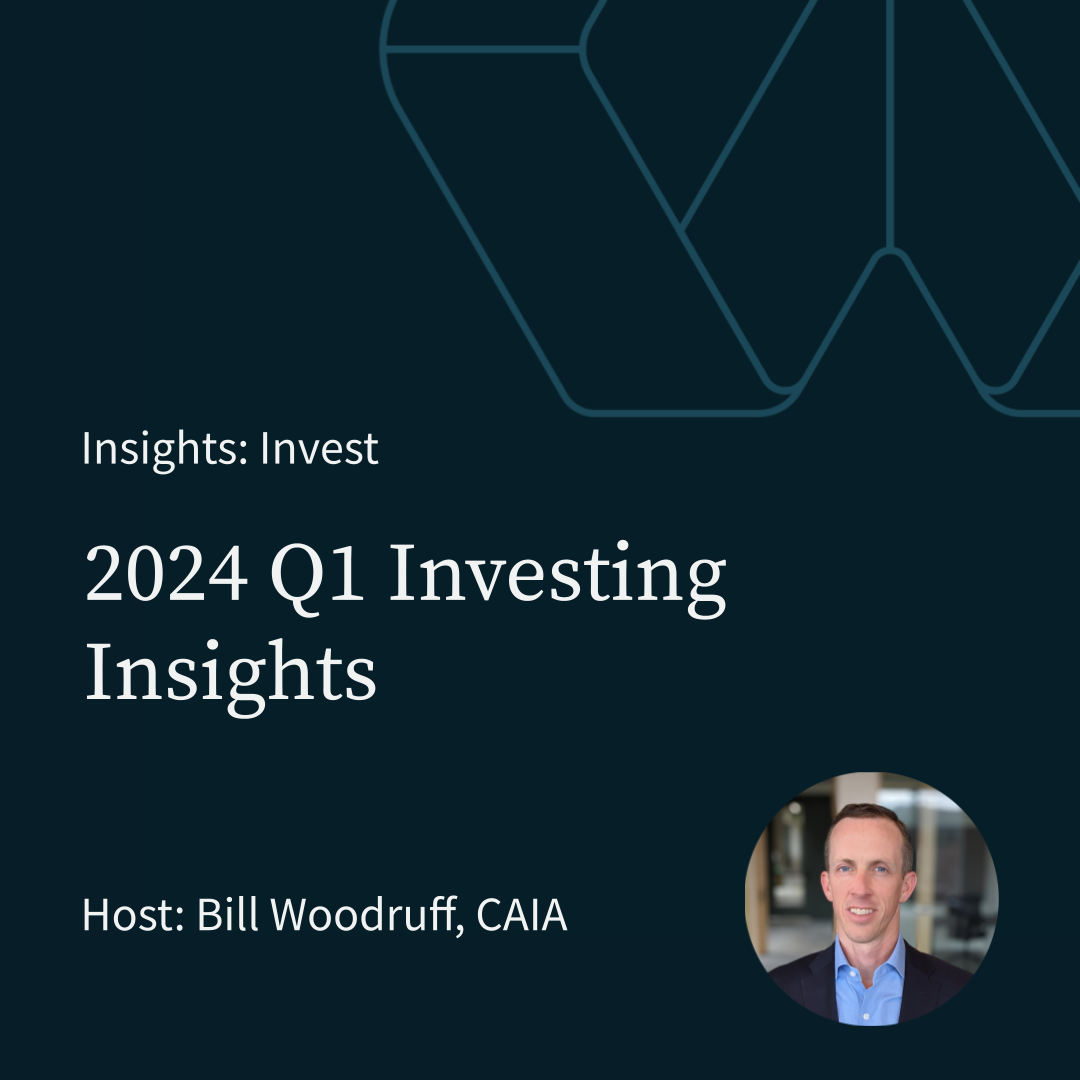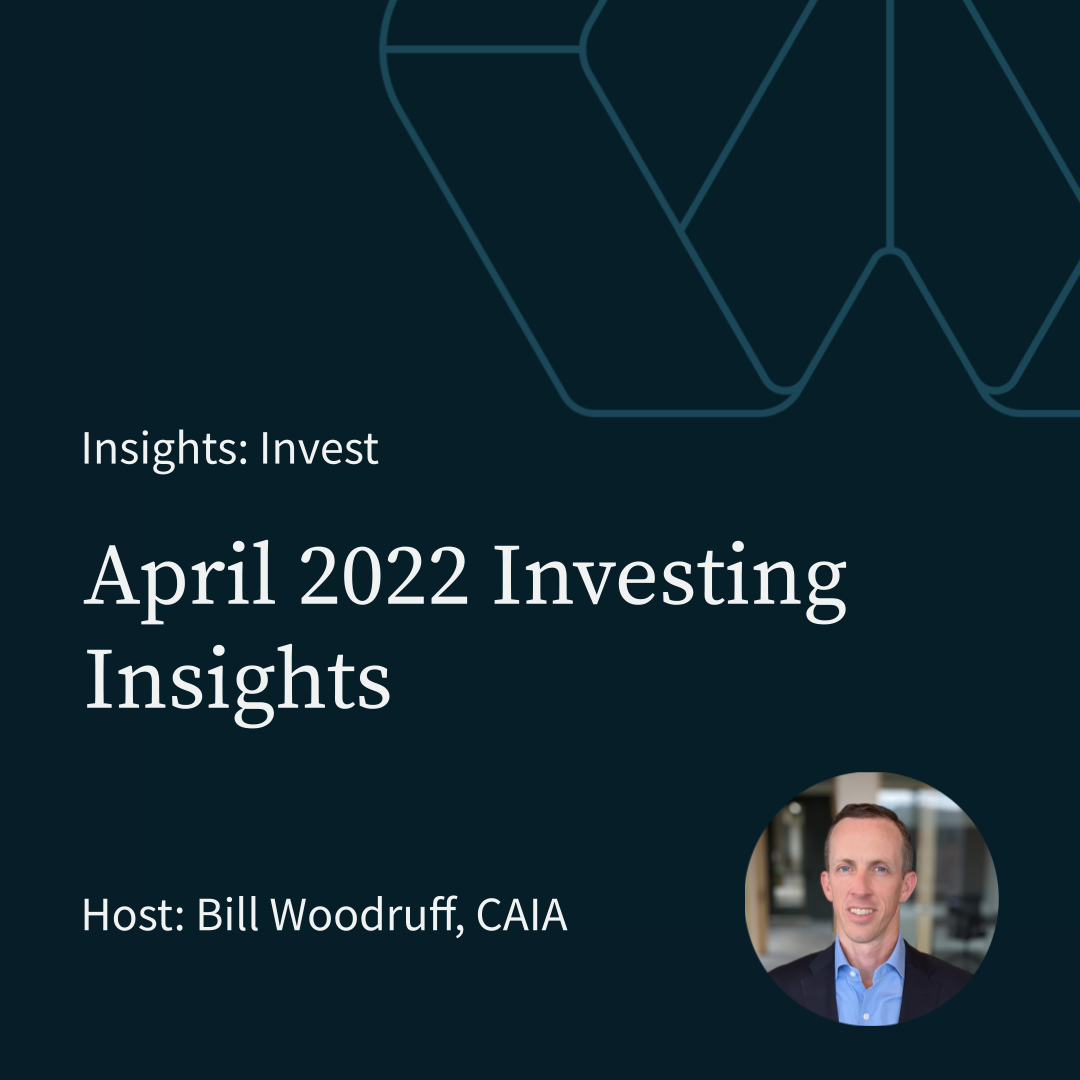How to Select an Investment Advisor
It’s important to do your due diligence before selecting an investment services provider. After all, you’ve worked hard to build your wealth and you need an expert to help you preserve it, right?
In my role as the Senior Wealth Concierge at WealthFactor, and through my years of client services experience, I’ve come across many instances where clients or potential clients are vetting financial advisors, for one reason or another. -2.png?width=337&name=Blog%20Stylized%20Quotes%20Verticle%20(2)-2.png)
At WealthFactor we recommend working through these due diligence steps.
Online Searches
The first place you should start is online with a deep dive into the following areas, looking for potential red flags.
- Investment Advisor Public Disclosure Website
- Look for disclosures for complaints, regulatory actions, employment terminations, arbitrations, bankruptcies and civil or criminal proceedings
- Google Search
- Look for negative reviews
- Look for negative press
- Search a variety of combinations of advisor names and current firm and prior firms.
- Social Media Search (specifically LinkedIn)
- Is there a presence as an industry expert or thought leader?
- Are all of their activities professional?
Review of Filings
While visiting a firm's website and talking with team members is part of the process, we subscribe to the idea that one should trust, but verify. Investment services are highly regulated and as such there are excellent public resources to aid due diligence.
The Securities and Exchange Commission (SEC), the primary regulatory body, provides an online resource called the Investment Advisor Public Disclosure website. This site makes public the information that investment firms and advisors are required to report to the SEC regarding the underlying structure of their business and how they manage client assets.
You’ll find three reports on this site:
- Investment Advisor Public Disclosure (IAPD) Report: This report outlines an individual advisor’s qualifications, registration, and employment history. It’s worth noting that registration histories don’t always provide a clear guide to professional experiences. Why? Oftentimes roles that don’t involve sales or making recommendations to clients aren’t registered in the profile. See Bill Woodruff’s IAPD Report. For a more resume like list of experience LinkedIn can be useful: See Bill's LinkedIn Profile
- Form ADV: This is the firm’s SEC filing. It outlines details such as basic information (name, location, contact details, website address); if they have any other business name or offices; the type of organization they are (LLC for instance); and then lots of details about the advisory business (employees, clients, compensation structure, assets under management, etc). It also includes details about other business activity they are involved in (such as insurance or law); and affiliations they have in the financial industry. Finally, the document outlines any criminal or regulatory actions against the firm. See WealthFactor’s latest ADV filing.
- Part 2 Brochures: These are essentially the firm’s plain English version of their Form ADV filing. See WealthFactor’s Part 2A Brochure and Part 2B Brochure.
Additionally, if they are affiliated with a broker dealer you may also want to consult with BrokerCheck - generally, we recommend crossing anyone off your list that does have a broker dealer affiliation.
Reviewing these reports can be a little overwhelming, so at WealthFactor, we recommend you review and consider the following in a firm’s filings:
- What type of firm is it and what is its reporting status? (Item 1)
- Are they a Registered Investment Advisor, Hybrid, or Broker Dealer? Working with an independent registered investment advisor rather than a dually registered firm or a broker dealer maximizes the probability that you will receive advice that is truly in your best interest (a true fiduciary).
- Who regulates the firm? (Item 2)
- What kind of clients does the firm serve? (Item 5)
- Working with a firm that services high volumes of retail customers rather than high net worth individuals might not be the right fit depending on your situation (client needs change as wealth and complexities increase).
- Who owns the firm? (Schedule A)
- How do fees work? (Part 2A)
- How do they charge?
- Commissions from products? This doesn’t just mean getting a commission for selling a stock. Many financial products imbed compensation for selling agents (registered representatives of broker dealers).
- Fees based on assets under management?
- Flat fees or project based fees?
- How do they charge?
-
- How much do they charge?
- We believe that once a portfolio reaches $1 million that those paying more than 0.35% on assets under management are overpaying.
- How much do they charge?
-
- Do they receive any revenue from sources other than their clients?
- The answer to this question should almost always be no!
- Do they receive any revenue from sources other than their clients?
- Are there any outside business activities that create a conflict of interest? (Item 6)
- Are there any financial industry affiliations? (Item 7)
- Are there any disclosures of regulatory events? (Item 11)
Advisor Interview
Now, you may have gleaned from the filings on a firm that there aren’t any red flags and that’s great news. But, there’s one final step you should take now that you’ve done this due diligence. And I highly recommend that you do… interview the advisor you are considering!
- Schedule a time to meet with (whether in person or over video chat), the advisor or firm you are considering working with and ask due diligence questions.
- Evaluate their responses and note any red flags such as:
- Are they slow to respond?
- Do they provide incomplete and ineffective answers?
- Are their answers confusing?
- Are they defensive in their responses?
Additionally, whether through interview or the firm’s website, the following elements should also be considered:
- Service model & key professionals
- Is the size of the team consistent with your level of wealth? If you have significant wealth perhaps you should have a team of subject matter experts rather than a financial advisor. Why? Because financial advisors and financial planners are often generalists which may or may not be right for you.
- How long have key team members been in the industry?
- What degrees, licenses, or professional designations have they earned? Are they a fit for your unique needs?
- Is the size of the team consistent with your level of wealth? If you have significant wealth perhaps you should have a team of subject matter experts rather than a financial advisor. Why? Because financial advisors and financial planners are often generalists which may or may not be right for you.
- Investment Philosophy
- Are they active or passive?
- Request performance history, specifically if they are active and claim they are going to outperform the market over time.
- Are they active or passive?
- Investment Methodology
- Do they outsource the investing to managers or funds?
- If they outsource investing, understand what their value add is and how they justify their fees.
- Do they outsource the investing to managers or funds?
- Planning Resources
- Do they have internal tax and estate subject matter expertise and resources?
Recap
Arming yourself with the most accurate information possible when vetting an advisor or firm is smart. Don’t take a recommendation as a done deal, until you’ve done your homework.
At WealthFactor, we’ve built our business on the principles of simplicity, accessibility, and transparency, proven by our openness about our own filings and exercised each day by how we utilize technology and real subject matter experts to help you manage your wealth well.
Here are other Insights pieces that showcase how WealthFactor is unique:
|
As a Senior Wealth Planner, I'm always here to answer questions and help coordinate with other experts as needed.- Brie Valant, Senior Wealth Planner @ WealthFactorSchedule a time to talk and meet our team of Wealth Experts. |












